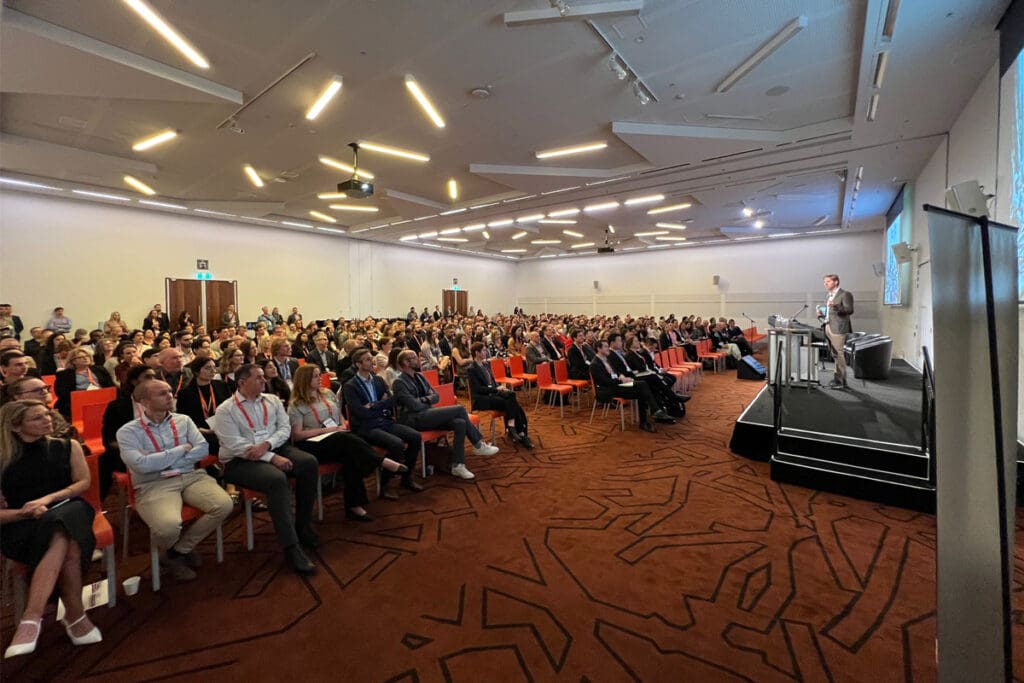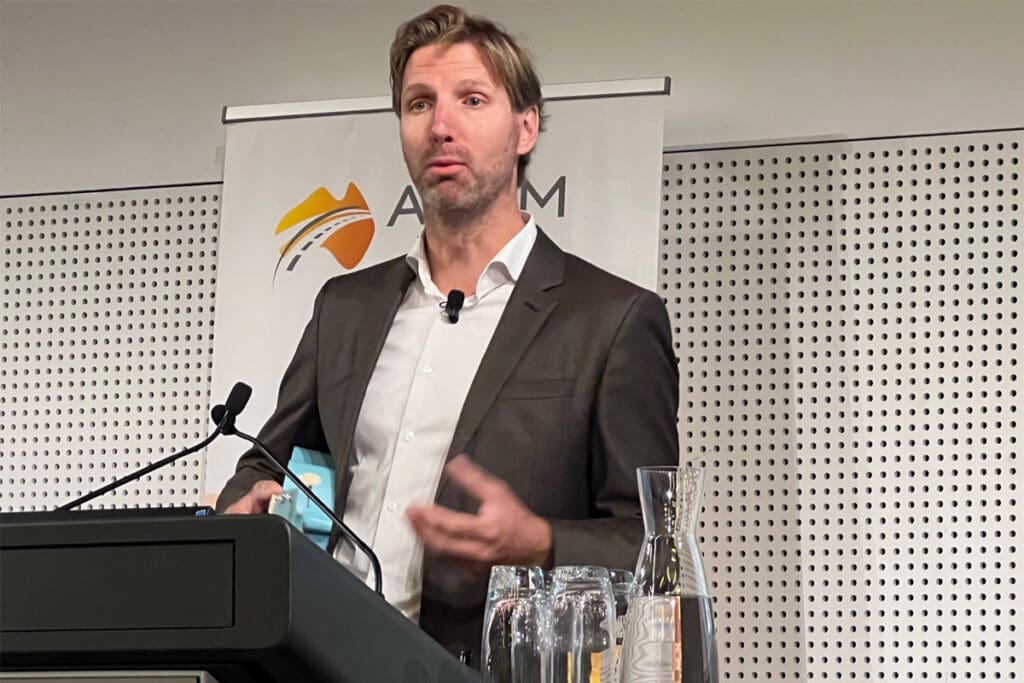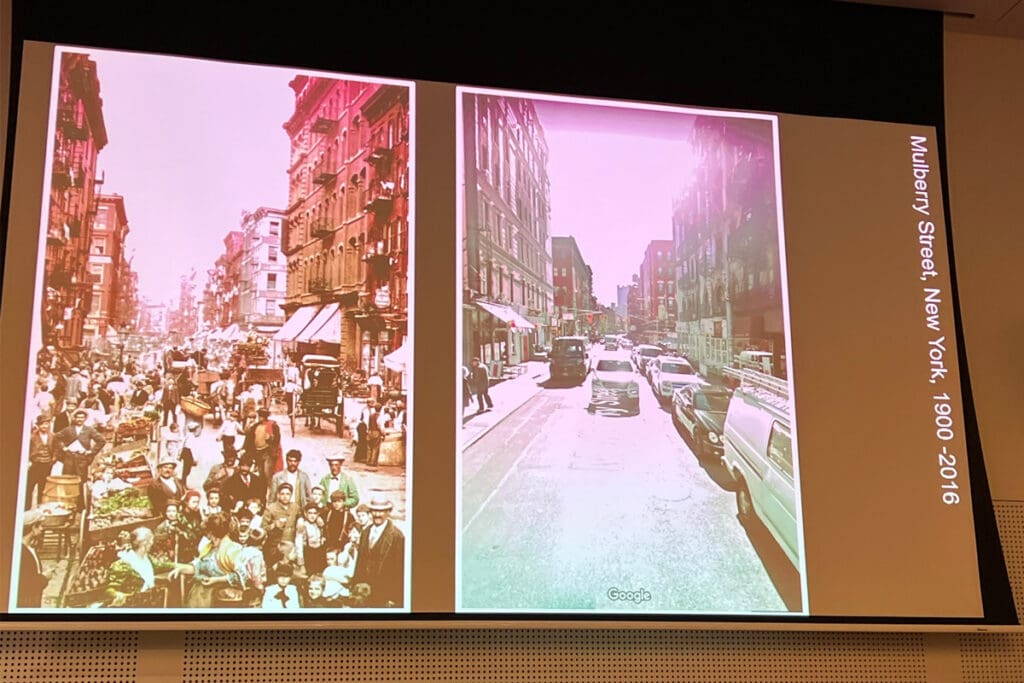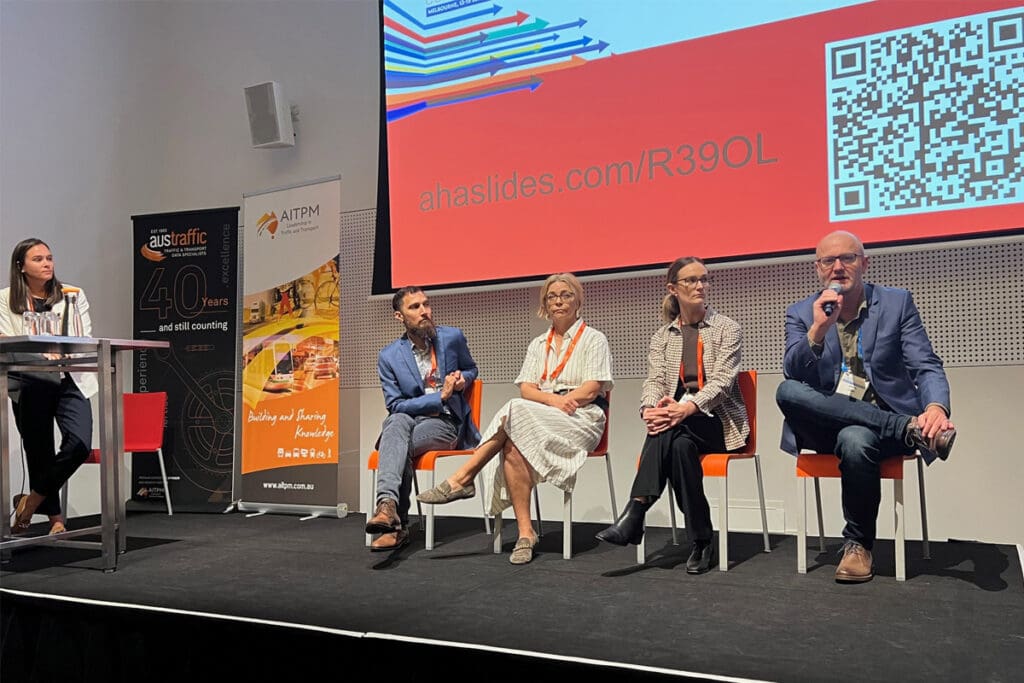Record AITPM Conference Embraces Micromobility

Melbourne, Victoria
The Australian Institute of Traffic Planning and Management (AITPM) is the national association for traffic and transport professionals.
I first attended its National Conference in Perth, WA in 2018 as part of an invited delegation from We Ride Australia. We Ride was asked to run a one-day cycling forum the day prior and then stayed to participate in the full conference and expo.
We were concerned prior to leaving about how well cycling would be accepted by AITPM members, where most of the major sponsors and employers are large engineering firms that are most often building motorways and other heavy infrastructure projects.
But the cycling seminar was filled to capacity and there was not only acceptance but enthusiasm from delegates for alternatives to motoring.
Fast forward to 2023, and in September the AITPM’s National Conference in Melbourne was its largest ever, with approximately 580 delegates. There is great camaraderie within this organisation, evidenced by the volunteer committees who do a great job in organising the conference each year as it rotates throughout Australia’s States.

In 2023, micromobility and active transportation were even more prominent elements of the program, not just in well-attended theme sessions but via the keynote speakers.
Professor Marco te Bommelstroet set the tone with his opening keynote address which focused upon perspectives
“The deer is not crossing the road, the road is crossing the forest,” he said, referring to a famous quote by boxer Muhammad Ali.
Often referred to in the media as the ‘Cycling Professor’, Marco is a social scientist with a large global following and is chair on Urban Mobility Futures at the University of Amsterdam.
He said the profession of traffic engineering did not exist until the 1930s, when the rise of the private car was causing major problems. He said the first traffic engineers were previously water engineers and looked at everything from the perspective of flow and increasing throughput, with no comprehension for the social life that previously centred upon streets.
It’s little wonder we now have ‘traffic sewers’ in many of our cities, as he illustrated with ‘before and after’ photos of a street in New York.

Car-Centric Wake-Up
In a subsequent session, a Principal Transport Planner at consultancy WSP, Tim Sullivan, delivered stark data illustrating the extent of Australia’s car-centric transport system. He said Australian transport emissions per capita are 3.8 tonnes of CO2 per year, which is more than triple the average of the G20 (whose members, including Australia, are 20 of the wealthiest nations). The G20 average per capita is 1.1 tonnes per annum.
The Deputy Climate Change Commissioner in the government of Wales, Lee Waters, spoke about that nation’s dramatic policy shift and how it has gained momentum in recent years.
A recently completed Welsh Roads Review assessed all proposed new road projects against a new framework of criteria that included whether they would lead to increased CO2 emissions. As a result, 30 of 46 planned road projects were cancelled.
Wales is investing the resultant financial savings into public and active transportation.
Lee said Wales is now spending $43 per person per year on active transportation, which is lower that Ireland’s $120 per person per year, but dwarfs Victoria’s $5.
Professor Ingrid Burkett from Griffith University in Queensland said told the audience at her session that “climate goals are tied to equity goals”. She used a case study of Brisbane commuters from the outer suburb of Logan versus the inner suburb of Paddington.
Not only do the Logan commuters emit dramatically more CO2 per day, they also spend a much higher proportion of their already lower incomes on commuting and transport in general. This is both because of the greater distances they need to cover and their relative lack of alternative transport options compared to the residents of Paddington.

In a very well attended panel session specifically about micromobility, Damon Rao gave some detailed statistics about the Melbourne scooter share trail, which a few weeks after the conference ended, was extended for a third term.
Damon now works at global engineering firm AECOM, but until earlier this year was a senior transport planner at the City of Melbourne, working very closely on the scooter trial.
He said the trial, which started in February 2022 with 1,500 e-scooters, was later expanded to 2,500. There have been 5.4 million shared e-scooter trips since 1st February 2022, with a peak of six trips per scooter per day.
If you assume the average scooter fleet has been 2,000 during this time that’s a remarkable 2,700 trips per scooter.
That compares to 865,000 shared e-bike trips in Melbourne since December 2020, using a fleet of 1,000 e-bikes.
In terms of shared e-bike and e-scooter trips per day, Melbourne and Brisbane are currently Australia’s two leading cities, typically averaging between 10,000 and 12,000 rides per day.
Sydney, which currently only has e-bike share and no e-scooters, was a distant third at 4,000 rides per day, followed by Canberra and Adelaide which have both averaged between 2,000 and 4,000 rides per day depending upon the season.
Damon said share service Lime, which operates both e-bikes and e-scooters in Melbourne, reported that 51% of its e-bike users have first hired an e-scooter and that e-bike rides have actually increased since e-scooters were introduced.
He concluded that one of the keys to a successful trial so far was that the three Melbourne councils involved, the cities of Melbourne, Yarra and Port Phillip, have worked very closely together at all stages of the project.
This year’s AITPM conference concluded with a closing keynote by Lucinda Hartley from Neighbourlytics, an urban analytics company that tracks lifestyle data.
“Your postcode is as likely to affect your life expectancy as your genetic code,” she said, modifying a quote from the Robert Wood Johnson Foundation.
In summary, it’s encouraging that leading practitioners responsible for delivering Australia’s transport systems are not only being informed about the advantages of micromobility and active transport, but enthusiastically embrace these concepts.
The AITPM conference returns to Perth for 2024. Thanks to Kirsty Kelly, CEO of the AITPM for inviting Micromobility Report to attend the 2023 Conference.
